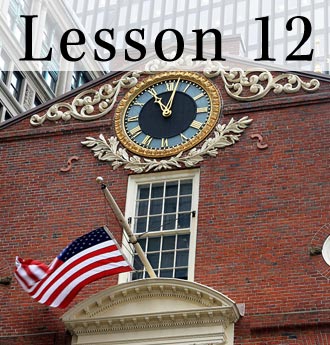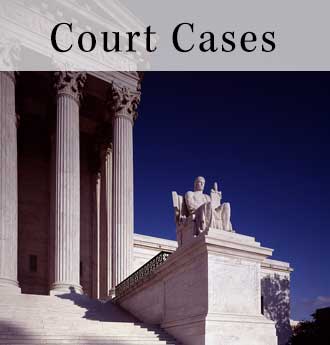Lesson 12: How Did the Delegates Distribute Powers between National and State Governments?
Franklin, Benjamin (1706-1790) Franklin was the oldest delegate to the Philadelphia Convention. With the possible exception of George Washington, Franklin was the best-known man in America. Born into a poor family, Franklin became an inventor, scientist, diplomat, and publisher. His Poor Richard's Almanac was read nationwide. His career in public service was long and varied, and included service as ambassador to England and France and as governor of Pennsylvania. At the Philadelphia Convention, Franklin was a compromiser, using wit to bring delegates together. A staunch advocate of colonial rights, he helped draft the Declaration of Independence and the Treaty of Paris (1783). He played an important role in creating the Great Compromise. He favored a strong national government and argued that the Framers should trust the judgment of the people. Although he was in poor health in 1787, he missed few sessions, being carried to and from the meeting place in a special chair. Although he did not agree with everything in the Constitution, he believed that no other convention could come up with a better document.
Locke, John (1632-1704) John Locke, a physician and philosopher, worked with famous scientists, including Robert Boyle and Robert Hooke. In contrast to Hobbes, Locke used state of nature and social contract theory to justify limited government and the preservation of individual rights, particularly life, liberty, and property. Locke is sometimes called "America's philosopher" because his Second Treatise of Government (1690) was widely read by the colonists and important ideas found in it (as well as in works of English republican writers) are found in the Declaration of Independence, especially his theories of natural rights and his defense of violent revolution after "a long train of abuses" of power by rulers. Two verbatim phrases of Locke's are found in the Declaration.
Madison, James (1751-1836) The "Father of the Constitution" was born to a wealthy Virginia family. He was taught at home and in private schools, then graduated from the College of New Jersey. While deciding whether to become a lawyer or minister, Madison became involved in the revolutionary cause, thereby entering state and local politics. His poor health kept him from serving in the military. In 1780, Madison was chosen to serve in the Continental Congress, where he played a major role. He was one of the most influential voices calling for a constitutional convention. He came to the Philadelphia Convention with a plan for the new government, took extensive notes on the proceedings, spoke more than 150 times, and worked tirelessly on various committees. As one of the authors of The Federalist, Madison was also a key figure in the battle for ratification. Following the convention, Madison served as a member of the U.S. House of Representatives, helping to frame the Bill of Rights and organize the executive department. Under Jefferson, Madison served as secretary of state. He then succeeded Jefferson as president. In retirement, Madison continued to speak out on public issues.
Morris, Gouverneur (1752-1816) Morris was born in New York to a wealthy family with a history of public service. Early in life, he lost a leg in a carriage accident. He graduated from King's College in New York City and studied law. Many of his family and friends were loyalists, but Morris sided with the patriots. He served in the militia as well as in the New York legislature and the Continental Congress. When he was defeated for Congress in 1779, Morris moved to Philadelphia to practice law. At the Philadelphia Convention, Morris gave more speeches than anyone else. He favored a strong national government ruled by the upper classes. He served on many committees and was the primary author of the actual document. After the convention, Morris spent ten years in Europe. He served briefly in the Senate, but then retired.







